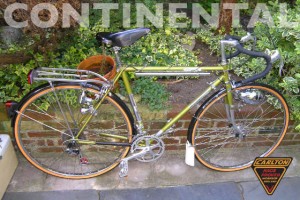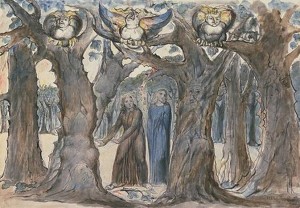When I was at school I had a brilliant friend called Philip. There were three of us, in fact, not due to split personalities but because we both had this other brilliant friend called Marcia. We’d play with words and try to make them dance for us. Sometimes they did. Sometimes it must have sounded like a collection of nervous ticks. Others, it must have just sounded like three kids who didn’t like sports.

Back then and still now I liked riding my bicycle. That was more difficult sometimes then because my fantastic bike got stolen. It was a metal-flake lime green Carlton Continental, hand-made in Birmingham as bikes were in those days. It was the best bike I’d ever had. Back then lights were a problem. They were big, they were heavy and they didn’t put out much light. That applied to almost every light you ever saw, in those days, but almost every battery light would fit every bicycle. Front lights had a slot that you slid over a metal tongue that was part of the bike, either just above the front mudguard or on the side of the forks. Back lights were usually bolted to the right hand side of the frame as high as you could get them without your coat covering them when you rode.
Times change. Lights are cheap, light and bright now. But they don’t fit everything. I’ve had to replace a lot of lights simply because they don’t fit the little plastic bracket on the bike, leftover from another lighting idea. It’s a waste, but unless you reach for the gaffa tape there isn’t a solution. It can’t be beyond the wit of lights manufacturers to make one standard bracket that fits everything. But who cares, apart from pinko cycling people who niggle about the environment?
The thing is, lights don’t always work. I’ve just read about a man who was run down by a van on his way home from work, 17:10 in Dorset one December day. He said his bike was ‘lit up like a Christmas tree.’ Philip, like Peter Cook before him but I didn’t know that then, would have immediately said ‘no thanks, I’ve just had one.” But then, Phil had a Saturday job in a record shop, so he could get all that stuff on a staff discount.
I nearly got in a bike accident when I was lit up like a Christmas tree too. It still doesn’t make any sense to me, more than accidents usually don’t. I was cycling to Orford, going to the Jolly Sailor five miles away one December night. It was cold and it was very, very dark and it’s not the busiest road. In fact it’s out in the middle of the nowheres, half of it pine forest, the other half an original medieval landscape, broadleaved trees and open heathland, a pretty little church, hardly any houses, deer roaming free. No streetlights and certainly no road drains. The only street furniture out there is a single red pillar-box on a post at the crossroads, with the letters E11R on it, from a time in the current Queen’s reign when investment in public services was obviously more affordable than it’s supposed to be now.
I had two armbands on, one on each arm, flashing red lights inside yellow reflective plastic so that any car at a junction could see which way I was turning. I had a yellow hi-visability vest on too, which I don’t often wear but I did that night. One yellow reflective bicycle clip because back then I didn’t have a Hebie chainguard. A flashing back light. One flashing front light and a steady front light too.
I wanted to make sure if anyone ran me down they couldn’t stand there in court and be believed when they came out with the traditional ‘I didn’t see him.’ Obviously, experience says that they’d then have added ‘anyway, it was only a bike, your Honour’ and been acquitted and probably reimbursed for their inconvenience, but that’s something else.
It was pitch black, no cars, just me and the flash of the lighthouse out on Orford Ness three miles away, just over to the right in front of me. That’s when I heard the clicking. Then more of it.
It was odd. It wasn’t anything metal. But there was a lot of it. Then something dark moved, right at the edge of where my front light was shining. It wasn’t human.
I mean, it really wasn’t human. I stopped the bike, because I knew it was. Despite all the lights, a little herd of deer had wandered across the road just as I got there. Now they were all around me, about ten of them. I stopped because I’ve seen them run and once one of them does they all do. I didn’t want three hundredweight of deer running into me, then nine more of them running over me with their sharp hooves. That’s what was making the clicking on the road.
Somehow I’ve mixed up brackets and lights again, so it’s time to have to get a whole new light. I’m going into town later so I’ll have a look at what’s around, the old fashioned way first before I go on Amazon or eBay because that’s how I am. I’ll still be lit up like a Christmas tree again. And hopefully the deer still won’t care.


